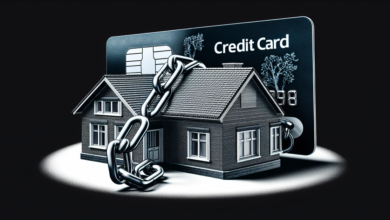Can a Credit Card Judgement Take My Car
Isn't it a coincidence that you just paid off your credit card, yet you're still worried about a potential judgment? If you've ever faced financial struggles, you might be wondering if a credit card judgment can actually take your car. The truth is, it depends on several factors, including your state's exemption laws and whether your vehicle is regarded as an essential asset. Understanding these nuances can help you protect your property, but there are vital aspects you need to take into account before making any assumptions.
Understanding Credit Card Judgments
A credit card judgment occurs when a creditor successfully sues you for unpaid debt, leading to a court ruling in their favor. Once a judgment is entered, it can greatly impact your financial situation. Creditors can pursue various methods to collect the debt, including wage garnishment or bank levies. It's crucial to understand that judgments can also affect your credit score, making it harder to secure loans or favorable interest rates in the future. To protect yourself, consider seeking legal advice if you're facing a lawsuit. Knowing your rights and options can help you navigate this challenging situation and potentially negotiate a settlement or payment plan, ensuring you maintain some control over your financial health.
How Judgments Affect Assets
Once a credit card judgment is entered, it can lead to the potential seizure of assets, including vehicles, depending on your state's laws and the specifics of your financial situation. It's essential to understand how these judgments can impact your property.
| Asset Type | Potential Impact |
|---|---|
| Vehicles | May be seized if not exempt |
| Bank Accounts | Can be garnished |
| Real Estate | May face liens |
| Personal Property | Subject to seizure |
Recognizing how judgments affect your assets can help you take proactive measures. You might want to consult with a financial advisor or legal professional to navigate your options and protect your valuable property. Keeping informed is key to maintaining your financial safety.
State Laws and Exemptions
State laws play an essential role in determining whether your car can be seized after a credit card judgment, as many states provide specific exemptions that protect certain assets from creditors. Typically, states allow you to exempt a specific value of your vehicle, meaning you won't lose your car if it falls within that limit. For example, some states may have a maximum exemption amount, while others might exempt a certain type of vehicle, like those necessary for work. It's vital to understand your state's laws, as they can vary greatly. By knowing these exemptions, you can better protect your assets and guarantee that your vehicle remains safe from potential seizure due to unpaid debts.
Secured Vs. Unsecured Debt
Understanding the difference between secured and unsecured debt is essential, especially when considering how your assets, like your car, might be affected by a credit card judgment. Secured debt is backed by collateral, meaning if you default, creditors can seize the asset—like your car—to recover their money. On the other hand, unsecured debt, such as credit card debt, isn't tied to any specific asset. If you fail to pay, creditors can't directly take your car, but they can obtain a judgment against you. This judgment could lead to wage garnishment or bank levies, indirectly impacting your finances. Being informed about these distinctions helps you make better financial decisions and protect your assets from potential risks.
The Process of Repossession
In the event of defaulting on a secured loan, creditors can initiate the repossession process to reclaim the asset, typically following specific legal procedures. First, they'll send you a notice of default, outlining your missed payments and the steps to rectify the situation. If you don't respond or settle the debt, they can proceed with repossession without needing a court order in many states. This often involves a repossession agent who takes the vehicle, sometimes from your driveway or a public area. You should be aware that repossession can also involve additional fees, which may increase your overall debt. Understanding this process can help you take proactive steps to protect your financial well-being.
Protecting Your Vehicle
Taking proactive measures can help you protect your vehicle from potential creditors seeking to reclaim assets. First, consider transferring the car's title to a trusted family member or friend. This can create a barrier between your vehicle and creditors. Additionally, check your state's exemption laws; many allow you to keep a certain value of your vehicle. If you qualify for bankruptcy, this can also safeguard your vehicle from liquidation. Always maintain accurate records of your vehicle's value and ownership. Finally, consider purchasing gap insurance, which can provide financial protection in case of unexpected events. By staying informed and taking these steps, you can help shield your vehicle from unwanted claims and guarantee your mobility remains intact.
Options After a Judgment
After a judgment is issued against you, it's important to know the options available to manage the situation and protect your assets, including your vehicle. First, consider negotiating a payment plan with the creditor. This can help you avoid further legal action and keep your car safe. You might also explore filing for bankruptcy, which can provide an automatic stay on collections, potentially protecting your vehicle from repossession. If you believe the judgment was unfair, you can file an appeal, but be mindful of deadlines. Finally, check your state's exemptions for personal property; these laws may allow you to keep your car even with a judgment against you. Understanding these options can help you safeguard your assets effectively.
Legal Resources and Assistance
Exploring legal resources and assistance can be essential for maneuvering the complexities of a credit card judgment and protecting your vehicle. You should consider consulting with a qualified attorney who specializes in consumer debt or bankruptcy law. They can provide tailored advice based on your situation and help you understand your rights. Local legal aid organizations might also offer free or low-cost services for those who qualify. Additionally, online legal resources can supply valuable information, including templates for responses to judgments. Remember, being proactive in seeking assistance can not only clarify your legal standing but also prevent potential asset loss, such as your car. Don't underestimate the importance of having knowledgeable support during this challenging time.
Preventing Future Financial Issues
To avoid future financial issues, it's essential to establish a budget that prioritizes essential expenses and debt repayment. Start by tracking your income and expenditures to identify areas where you can cut back. Allocate funds for necessities like housing, utilities, and groceries first, then focus on paying down debts, especially high-interest credit cards.
Consider setting up an emergency fund to cover unexpected expenses, which can help prevent reliance on credit. Regularly review your financial situation and adjust your budget as needed. Additionally, educate yourself on credit management and seek professional advice if necessary. By taking these proactive steps, you can secure your financial future and reduce the risk of judgments that threaten your assets, including your car.

